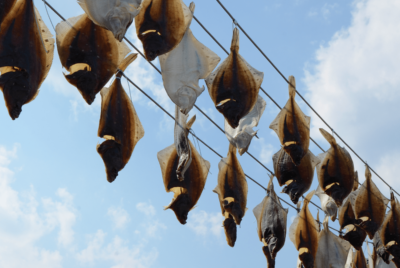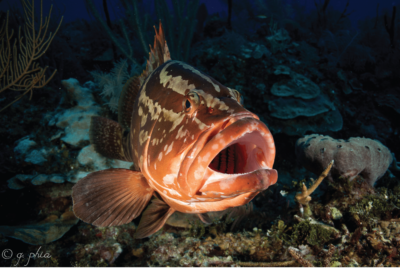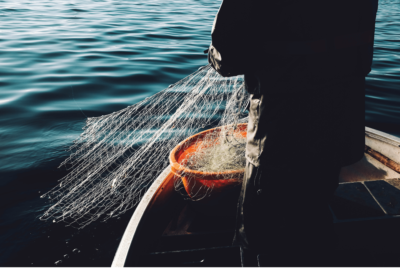Heat waves on land conjure up images of dry, cracked riverbeds; the gnarled branches of a long-dead tree. Heat shimmering above pavement as dust swirls slowly across an empty road. Although the drama of warming over land is easier to imagine, heat waves in the ocean can lead to irreversible ecosystem damage. In a study published in Nature this August, a team lead by Nereus researcher Dr. Thomas Frölicher, Assistant Professor for Ocean Modelling at the University of Bern, found that the number of marine heat waves has doubled in past 34 years. This number will continue grow as a result of climate change, leading to losses in the millions for the fishing industry.
Frölicher and his colleagues Nicolas Gruber and Erich Fischer from ETH Zurich found that the number of marine heat wave days has doubled between 1982 and 2016. Based on current national carbon emission policies, the average global temperature is set to increase by 3.5°C by the end of the century. If that happens, marine heat waves will increase by 41 fold, meaning we’ll see a jump from just fewer than four marine heat waves a year to a startling 122. The biggest impacts are projected in the western tropical Pacific and in the Arctic Ocean.
Marine heat waves can devastate ecosystems and cause a considerable blow to fisheries. Recent heat events on the west coast of Australia and off California acted as ominous demonstrations of the damage potential: stranding of marine mammals, massive fish die-offs and animals fleeing to cooler refuge in significant numbers.
Coral ecosystems are particularly vulnerable. Under prolonged exposure to heat, corals expel the tiny colorful algae living in their tissues, leaving behind a white skeleton. Without these algae to provide nutrients, the corals to starve, and many eventually die. “Until now the corals were often able to recover from such bleaching events,” said Frölicher. “However, if the intervals between these events become shorter, the corals will no longer have time to regenerate and irreversible damage can be expected.”
Using satellite data and climate models, Frölicher shows that marine heatwaves aren’t just happening more often. They are also becoming more intense, lasting longer and covering wider areas. “Our results suggest that marine heat waves are becoming commonplace as a result of climate change,” explained Frölicher, “this will largely increase the risk of severe impacts on marine organisms, especially those with reduced mobility.”
These changes also have consequences for fishing. The marine heat wave in the north-west Atlantic in 2012 led to an unusually early migration of lobsters into this region—at a time when the supply chain was not yet ready and the consumers were not used to buying lobsters. The record catch outstripped market demand and contributed to a price collapse and losses of millions of dollars for the fishing industry.
This study on marine heat waves is part of a still relatively unexplored research area: extreme events in the oceans. It is only recently that extreme marine events have started to be discussed in the context of climate change. “They can lead to a complete change of marine ecosystems. And in some cases, these will no longer revert back to their original conditions even after extended periods of time,” explains Nicolas Gruber, Professor of Environmental Physics at ETH Zurich. “This can also happen very abruptly with marine heat waves.”
“The number of marine heat waves is increasing more rapidly than the number of heat waves on land,” says Erich Fischer, climate scientist at ETH Zurich. Although the warming over land is larger than over sea, the oceans react considerably more sensitively. This occurs because the temperature variability is much smaller in the water than in the atmosphere. The probability of marine heat waves, therefore, increases disproportionately to comparatively small temperature increases.
For more information, see the full paper here.
Thomas L. Frölicher, Erich M. Fischer, Nicolas Gruber. 2018. Marine heatwaves under global warming, Nature.







